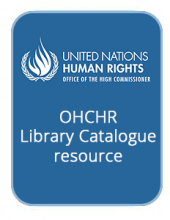/ library resources
Showing items 1 through 9 of 10.RECOFTC's regional conflict study examines the drivers and impacts of forest conflict in eight cases in six countries. Findings were presented at the Collective Action, Property Rights and Conflict in Natural Resource Management research workshop in Siem Reap from 28 June - 1July 2010.
As negotiations on the shape of REDD+ continue at national and global levels, REDD-Net’s network of civil society organizations has identified the issue of trust as a high priority for further examination.
Violent conflict affects three quarters of Asia’s forests and tens of millions of people. In Cambodia, for example, nearly half of the 236 land conflicts recorded in 2009 escalated to violence.
This book examines how the liberal peace experiment of the post-Cold War environment has failed to connect with its target populations, which have instead set about transforming it according to their own local requirements.
Liberal peacebuilding has become the target of considerable criticism. Although much of this criticism is warranted, a number of scholars and commentators have come to the opinion that liberal peacebuilding is either fundamentally destructive, or illegitimate, or both.
This article is interested in the interface between internationally supported peace operations and local approaches to peace that may draw on traditional, indigenous and customary practice.
This Quick Guide to Land and Conflict Prevention presents approaches and alternatives for addressing tensions over land, resources and property which left unaddressed may lead to violent conflict.
Sierra Leone's conflict has often been characterized as a 'crisis of youth'.
Pagination
Land Library Search
Through our robust search engine, you can search for any item of the over 73,000 highly curated resources in the Land Library.
If you would like to find an overview of what is possible, feel free to peruse the Search Guide.









